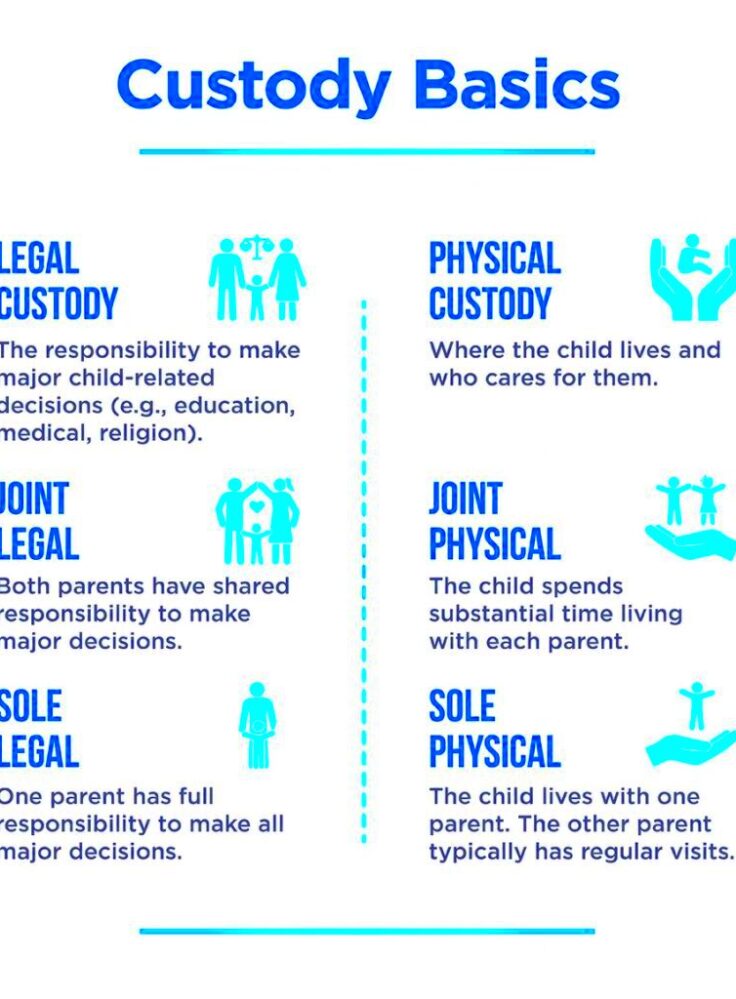Enforcement of Child Custody Laws in Colorado
Child custody laws in Colorado are designed to ensure that children’s best interests are prioritized during custody disputes. When parents separate or divorce, they must decide how to share parenting responsibilities. Colorado’s laws focus on creating arrangements that support the child’s emotional and physical well-being, allowing both parents to be involved in their child’s life. Understanding these laws is crucial for parents navigating custody issues.
Types of Child Custody Arrangements

In Colorado, there are two main types of custody arrangements: legal custody and physical custody. Each type can be further divided, and understanding these distinctions is important for parents.
- Legal Custody: This refers to the right to make important decisions about the child’s life, such as education, healthcare, and religious upbringing. Legal custody can be:
- Sole Legal Custody: One parent has the exclusive right to make decisions.
- Joint Legal Custody: Both parents share the decision-making responsibilities.
- Physical Custody: This refers to where the child lives and who takes care of them. Physical custody can also be:
- Sole Physical Custody: The child lives primarily with one parent.
- Joint Physical Custody: The child spends significant time with both parents.
Factors Influencing Custody Decisions

When courts in Colorado decide on custody arrangements, they consider several factors to determine what is best for the child. These factors include:
- The child’s age and health: Younger children may need more time with their primary caregiver.
- The emotional ties between the child and each parent: Strong relationships can impact custody decisions.
- Each parent’s ability to provide a stable environment: Courts look for safe and nurturing homes.
- The child’s preference: Depending on their age, children may express a preference for where they want to live.
- Any history of domestic violence: Safety is a top priority in custody cases.
- Co-parenting willingness: Parents who can work together may be favored for joint custody.
By understanding these factors, parents can better prepare for custody discussions and advocate for their child’s best interests.
Understanding the Enforcement Process
The enforcement process in child custody cases in Colorado ensures that custody agreements or court orders are followed. If one parent is not complying with the custody arrangement, the other parent can seek enforcement through the courts. This process is crucial to maintaining stability in the child’s life and ensuring that both parents fulfill their responsibilities.
Here’s how the enforcement process generally works:
- Documentation: Keep detailed records of any violations. This can include missed visitation dates, lack of communication, or failure to adhere to agreed-upon schedules.
- Communication: Before going to court, try discussing the issues directly with the other parent. Open communication can sometimes resolve misunderstandings.
- Filing a Motion: If communication fails, you may file a motion for enforcement in court. This legal document outlines the specific violations and requests the court’s intervention.
- Court Hearing: Both parents will have the opportunity to present their case during a court hearing. Be prepared with evidence and any documentation that supports your claims.
- Enforcement Orders: If the court finds in your favor, it may issue orders that require the other parent to comply with the custody arrangement. This could include changes to custody schedules or other measures.
Understanding this process can empower parents to take action if they face compliance issues and ensure their child’s needs are met.
Role of the Court in Custody Enforcement
The court plays a crucial role in the enforcement of custody agreements in Colorado. Its main function is to ensure that custody arrangements are fair, just, and beneficial to the child. Here are some key responsibilities of the court in this context:
- Reviewing Agreements: Courts initially establish custody arrangements based on the child’s best interests. This includes reviewing parenting plans and any modifications proposed by parents.
- Addressing Violations: If a parent violates a custody agreement, the court can step in to address the issue. They evaluate evidence and determine if enforcement is necessary.
- Issuing Orders: The court has the authority to issue enforcement orders. This can include altering custody arrangements or imposing penalties for non-compliance.
- Promoting Co-Parenting: Courts encourage cooperation between parents. They may suggest mediation or counseling to resolve disputes and promote healthier co-parenting relationships.
- Protecting the Child’s Welfare: Ultimately, the court’s primary concern is the child’s safety and well-being. They ensure that custody decisions support a stable environment for the child.
Understanding the court’s role helps parents navigate the system effectively, ensuring they can advocate for their child’s best interests.
Common Challenges in Custody Enforcement
Enforcing child custody agreements can come with its fair share of challenges. Parents may face various obstacles that complicate compliance and the enforcement process. Here are some common challenges:
- Lack of Communication: Poor communication between parents can lead to misunderstandings and conflicts, making it harder to follow the custody agreement.
- Non-compliance: One parent may refuse to adhere to the court-ordered arrangement, which can disrupt the child’s routine and stability.
- Emotional Stress: Custody disputes can be emotionally taxing, leading to heightened tensions between parents. This stress can affect decision-making and communication.
- Changes in Circumstances: Life changes, such as job relocations or health issues, can impact custody arrangements, making enforcement challenging.
- Legal Complexities: The enforcement process can be legally complicated, with paperwork and court procedures that may be difficult to navigate without legal assistance.
Being aware of these challenges can help parents prepare and seek appropriate support. Consider reaching out to legal professionals or support groups for guidance in overcoming these obstacles and ensuring the child’s needs are prioritized.
Resources for Parents Seeking Enforcement
If you’re a parent facing challenges in enforcing a child custody agreement in Colorado, you don’t have to navigate this process alone. There are several resources available to help you understand your rights and seek enforcement effectively.
- Legal Aid Organizations: Many non-profit organizations provide legal assistance to low-income families. They can help you understand your options and represent you in court if needed.
- Family Law Attorneys: Consulting with an attorney who specializes in family law can provide valuable insights into your specific situation. They can guide you through the enforcement process and advocate for your interests.
- Court Self-Help Centers: Colorado courts often have self-help centers where you can find forms, instructions, and assistance with understanding court procedures. They can help you prepare for hearings.
- Mediation Services: Mediation can be a less adversarial way to resolve disputes. Many courts offer mediation services to help parents reach agreements without going to trial.
- Support Groups: Connecting with other parents who are experiencing similar challenges can provide emotional support and practical advice. Look for local support groups or online forums.
Utilizing these resources can empower parents to take proactive steps in enforcing custody arrangements, ensuring their child’s best interests are met.
FAQs About Child Custody Enforcement in Colorado
Many parents have questions regarding child custody enforcement in Colorado. Here are some frequently asked questions to help clarify common concerns:
- What can I do if the other parent is not following the custody agreement? You should document any violations and attempt to communicate with the other parent. If issues persist, you can file a motion for enforcement in court.
- Can I modify a custody agreement? Yes, you can request a modification if you believe a change is in the best interest of the child. However, you will need to present evidence supporting your request.
- What happens if the court finds the other parent in violation? The court may issue orders to enforce the custody agreement or impose penalties, depending on the severity of the violation.
- How can I prepare for a court hearing? Gather all relevant documentation, such as communication records, witness statements, and any evidence of violations. Be ready to clearly present your case.
- Is it necessary to have a lawyer for custody enforcement? While it’s not mandatory, having a lawyer can significantly improve your chances of successfully navigating the legal process.
Conclusion on Child Custody Laws in Colorado
Child custody laws in Colorado prioritize the well-being of children and aim to create balanced arrangements that allow both parents to be actively involved in their lives. Understanding the types of custody, the enforcement process, and the role of the court is essential for parents facing custody disputes. Resources are available to support parents seeking enforcement, and knowing your rights can empower you to advocate for your child’s best interests effectively.
While navigating these laws can be challenging, being informed and proactive can lead to better outcomes for both you and your child. Remember, the focus should always remain on what is best for your child’s emotional and physical health.


